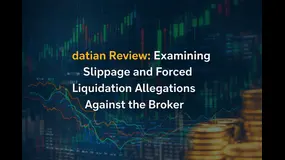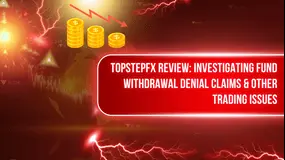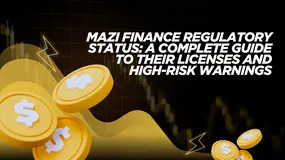WikiFX Valentine's Message | Trade Safely, Together Every Step of the Way
In the Forex Market, Trust Is Not a Promise — It’s Verified Through Safety, Transparency, and Support
简体中文
繁體中文
English
Pусский
日本語
ภาษาไทย
Tiếng Việt
Bahasa Indonesia
Español
हिन्दी
Filippiiniläinen
Français
Deutsch
Português
Türkçe
한국어
العربية
Abstract:The cryptocurrency tax landscape in Nigeria is still evolving. However, crypto traders are required to pay a 10% tax on all their capital gains once the digital assets are sold off.


What does the law say about Crypto taxation in Nigeria
Cryptocurrencies are generally classified as digital assets subject to taxation in Nigeria today.
On May 28, 2023, former Nigerian president Muhammadu Buhari signed the 2023 Finance Act into law, which includes a provision to tax profits on digital assets, including cryptocurrency.
The new law imposes a 10% capital gains tax on the disposal of digital assets, including cryptocurrency. This tax is payable by individuals, businesses, and other entities that are resident in Nigeria. The tax is calculated on the difference between the purchase price of the digital asset and the sale price.
There are a few important things to note about the present cryptocurrency tax law in Nigeria today:
First, the tax is only payable on realized capital gains, which means that it is only payable when the digital asset is sold or disposed of.
Second, the tax is based on the fair market value of the digital asset at the time of disposal.
Finally, the tax is payable in Nigerian naira (NGN) which means the capital gains will have to be converted to Naira while calculating the capital gains.
Implications of the Crypto Tax Law in Nigeria
Here are the implications of the crypto tax law in Nigeria today:
● Cryptocurrency traders in Nigeria are expected to pay taxes on their profits.
● Taxes are payable once the digital assets are sold.
● Taxes are payable only in Nigerian Naira.
● Crypto traders are expected to report their capital gains for proper taxation.
How to calculate cryptocurrency taxes in Nigeria
To calculate your cryptocurrency taxes in Nigeria, you will need to track your capital gains and losses. You can do this by using cryptocurrency accounting software or by manually tracking your transactions.
Once you have tracked your capital gains and losses, you can use the following formula to calculate your capital gains tax:
Capital gains tax = (Capital gains - Capital losses) * Capital gains tax rate
For example, if you made a capital gain of N100 million from the sale of cryptocurrencies in a given year, and you had no capital losses, then your capital gains tax would be N10 million (N100 million * 10%).
How to pay cryptocurrency taxes in Nigeria
To pay your cryptocurrency taxes in Nigeria, you will need to file a self-assessment tax return with the FIRS. You can do this online or by submitting a paper form.
When filing your tax return, you will need to disclose all of your income, including any income from cryptocurrencies. You will also need to calculate your capital gains tax and other applicable taxes.
Once you have calculated your taxes, you can pay them online or by submitting a cheque or bank draft to the FIRS.
Conclusion
The cryptocurrency tax landscape in Nigeria is still evolving. It is important to stay up-to-date on the latest developments and to consult with a qualified tax advisor if you have any questions about the tax treatment of your cryptocurrency investments.

Disclaimer:
The views in this article only represent the author's personal views, and do not constitute investment advice on this platform. This platform does not guarantee the accuracy, completeness and timeliness of the information in the article, and will not be liable for any loss caused by the use of or reliance on the information in the article.

In the Forex Market, Trust Is Not a Promise — It’s Verified Through Safety, Transparency, and Support

Did you face losses due to a sudden change in the trading price on the datian platform? Were your transaction records deleted by the Hong Kong-based forex broker? Did the broker liquidate your trading account multiple times despite not reaching the stage where it mandated this move? Have you experienced heavy slippage on the trading platform? Concerned by these issues, traders have complained about the broker online. We will let you know of these with attached screenshots in this datian review article. Keep reading!

Did you face constant rejections of your fund withdrawal applications by TopstepFX? Have you been denied withdrawals in the name of hedging? Did you witness an account block without any clear explanation from the forex broker? There have been numerous user claims against TopstepFX regarding its withdrawals, payout delays and other issues. In the TopstepFX review article, we have investigated the top complaints against the US-based forex broker. Keep reading!

When choosing a broker, the first question is always about safety and legitimacy. Is my capital safe? For Mazi Finance, the answer is clear and worrying: Mazi Finance is an unregulated broker. While the company, MaziMatic Financial Services LTD, is registered in the offshore location of Saint Lucia, this business registration does not replace strong financial regulation from a top-level authority. Independent analysis from regulatory watchdogs shows a very low trust score, made worse by official warnings from government financial bodies and many user complaints about serious problems. This article provides a clear, fact-based analysis of the Mazi Finance regulation status. Our goal is to break down the facts and present the risks clearly, helping you make an informed decision and protect your capital.
